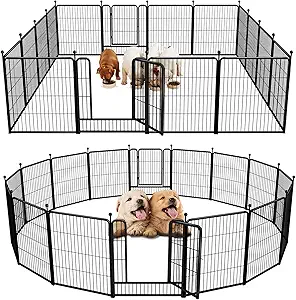Top Beagle FAQs: Facts and Tips for New Owners
This post may contain affiliate links, which means I’ll receive a commission if you purchase through my link, at NO EXTRA COST TO YOU
Beagles are a beloved breed, famous for their charm, intelligence, and endless curiosity. They make incredible companions, yet their spirited nature often leads new owners to ask many questions. This guide dives deep into frequently asked questions about Beagles, providing essential facts and practical tips for anyone considering a Beagle or looking to better understand this delightful breed.

1. What Is the Typical Personality of a Beagle?
Beagles are sociable, loyal, and curious dogs. They thrive on companionship and enjoy exploring their surroundings. You’ll often notice that their nose leads them to many places, which isn’t surprising given their history as scent hounds. Because of their friendly nature, they’re great with families, including homes with children or other pets. However, their curiosity often requires attentive supervision since they tend to explore anywhere that piques their interest.
Tips for Beagle Owners:
- Always keep your Beagle leashed when outside or in an open area.
- Provide interactive toys that engage their sense of smell, like puzzle feeders or scent-based games.
2. How Much Exercise Does a Beagle Need?
Beagles need a lot of physical activity to stay healthy and happy. Since they’re high-energy dogs, aim for at least an hour of exercise each day. They love walks, hikes, and interactive games that engage both their minds and bodies. Remember, without proper exercise, Beagles may develop unwanted behaviors, as their energy has nowhere to go.
Exercise Tips:
- Create a daily walking schedule that includes some variety, like exploring new routes or parks.
- Consider a secure area where your Beagle can safely roam off-leash to satisfy their love of exploring.
3. Do Beagles Bark a Lot?
Yes, Beagles are known for their vocal nature. Because of their hunting background, they communicate actively through barks, howls, and unique “baying” sounds. While these sounds are charming to some, they may be challenging in shared living environments.
Tips for Managing Barking:
- Set aside time to train your Beagle in appropriate barking, rewarding calm behavior.
- Engage them in activities that stimulate their mind, reducing boredom-related barking.
4. Are Beagles Easy to Train?
Training a Beagle requires patience, consistency, and a solid plan. These dogs are intelligent but can be stubborn. Their powerful sense of smell easily distracts them, which sometimes makes training sessions challenging. However, by using positive reinforcement and treats, you can effectively teach them essential commands and behaviors.
Training Tips:
- Use treats as rewards to reinforce desired behaviors, keeping training sessions short and engaging.
- Start with basic commands like “sit,” “stay,” and “come,” progressing to more advanced commands over time.
5. What Should Beagles Eat?
Beagles benefit from a high-quality, protein-rich diet that aligns with their activity level. Since Beagles love food and are prone to weight gain, pay close attention to portion sizes. Overeating can lead to obesity, which brings health risks, so monitor their diet closely and avoid feeding them table scraps.
Nutrition Tips:
- Choose a dog food specifically formulated for medium-sized, active breeds.
- Monitor treats, and use healthy options like small pieces of carrots, apples (without seeds), or special dog treats.

What Human Foods are Safe for Dogs and Cats?
As pet owners, we often find ourselves wanting to share our favorite foods with our furry friends. Those pleading eyes and wagging tails make it hard to resist! However, not all human foods are safe for dogs and cats. Feeding your pets the wrong foods can lead to serious health issues, from mild digestive problems to severe, life-threatening conditions.
6. Do Beagles Shed a Lot?
Beagles shed moderately year-round, with heavier shedding in the spring and fall. Their short coat makes grooming manageable, but regular brushing will help control shedding. Weekly brushing also promotes a shiny, healthy coat and minimizes loose hair around the home.
Grooming Tips:
- Brush your Beagle at least once a week with a slicker brush or grooming glove.
- Bathe your Beagle every couple of months or as needed, keeping their coat fresh.
7. Are Beagles Good With Children?
Beagles are wonderful family dogs and get along well with children. Their gentle, playful nature makes them great companions for kids. However, their boundless energy and curiosity mean children should know how to respect the dog’s boundaries.
Tips for Families:
- Teach children to handle Beagles gently and avoid disturbing them while eating or sleeping.
- Supervise playtime to ensure it remains safe and fun for both the dog and the child.
8. How Much Attention Do Beagles Need?
Beagles crave companionship and tend to become unhappy when left alone for extended periods. Loneliness can lead to anxiety, which sometimes causes destructive behavior like chewing or digging. Ideally, a Beagle should live in a household where someone is around for most of the day.
Tips for Busy Owners:
- If you’re away during the day, consider a dog walker or pet sitter for breaks.
- Provide mentally stimulating toys that keep them occupied in your absence.
9. What Health Issues Are Common in Beagles?
Beagles, like all breeds, have some predispositions to health issues. Common concerns include hip dysplasia, epilepsy, hypothyroidism, and certain types of eye disorders. Additionally, due to their love of food, they’re prone to obesity, so a balanced diet and regular exercise are essential.
Health Tips:
- Schedule annual vet check-ups to catch and manage potential health issues early.
- Maintain a balanced diet and exercise routine to support your Beagle’s health.
10. How Long Do Beagles Live?
With proper care, Beagles have a lifespan of 12 to 15 years. Their longevity depends on factors like diet, exercise, and genetics. By maintaining a healthy lifestyle and staying proactive with veterinary care, you can ensure your Beagle enjoys a long, happy life.
Longevity Tips:
- Stick to a nutritious diet, provide plenty of exercise, and attend regular vet visits.
- Stay vigilant for any changes in behavior, as early detection often leads to better outcomes.
Conclusion
Living with a Beagle offers a world of joy, energy, and endless loyalty. These adorable, intelligent dogs thrive when given structure, attention, and lots of love. As a new Beagle owner, understanding their unique needs—from training and exercise to health and grooming—helps create a positive, fulfilling bond with your dog.






